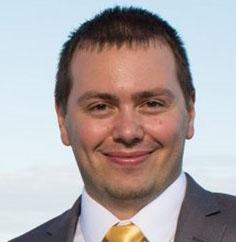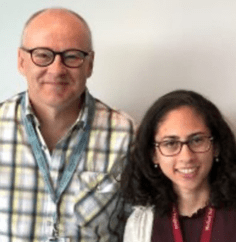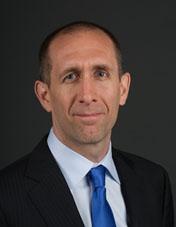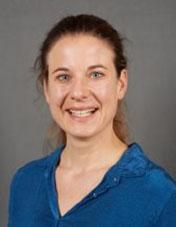Dr. Alyson Wong received a two-year $180,000 Robert Davidson Research Fellowship for 2018-20.

At the time, she was involved in several interstitial lung disease (ILD) research projects and was completing a Master of Health Science at the University of British Columbia (UBC). She also spent time treating patients in ILD clinics at St. Paul’s Hospital in Vancouver, shared her findings with colleagues at local and international medical conferences and engaged with the local Pulmonary Fibrosis support group.
The goal of her first research project was to evaluate the economic impact of ILD in BC and determine sources of diagnostic delay and the associated impact on patient outcomes. The aim was to identify health care inefficiencies that, when addressed, reduced time to diagnosis, improved patient outcomes and reduced health care costs.
Dr. Wong’s second research project evaluated whether the presence of other medical conditions in patients with PF has an impact on lung function by using the Canadian Registry for Pulmonary Fibrosis (CARE-PF). This was a multi-centre, national study using patient data from five provinces.
Her third research project involved identifying what features respirologists, radiologists and pathologists use to help distinguish chronic hypersensitivity pneumonitis from IPF. “It is important to make an accurate diagnosis and distinction between these two diseases because the treatments are different and could be harmful if used in a patient with the wrong diagnosis,” said Dr. Wong.

Dr. Andrei Vagaon, respirologist at Toronto General Hospital’s (TGH) Interstitial Lung Disease (ILD) clinics, received a one-year $90,000 Robert Davidson Research Fellowship for 2018-19.
He has implemented changes and developed new tools to improve the lives of people living with PF in Canada, and potentially the world. He has also improved his clinical skills as a respirologist and plans to help improve access to care in the Toronto area.
During his fellowship year, he has broadened his knowledge of how to approach and treat patients with PF. He has already been applying this knowledge in his own Toronto practice, helping patients live their best lives with the disease.
“There is something very basically human about meeting with people living with ILD,” said Dr. Vagaon, “When you cannot breathe, nothing else matters. It’s a question of survival and I want to help.”
The teaching, mentorship and guidance he has received at the TGH clinics has prepared him well to pursue his plan to partner with other ILD-trained physicians to start a dedicated clinic in another part of the city. “The increasing needs for care are likely to outpace the increase in resources,” he says. “I believe increasing ILD (Interstitial Lung Disease) clinic capacity is paramount to ensuring timely patient access.”
Dr. Kjetil Ask, Associate Professor, McMaster University, Firestone Institute for Respiratory Health, was awarded a $20,000 CPFF Research Grant for 2018-19.

The study completed by Dr. Kjetil Ask and PhD student Olivia Mekhael, shed new light on how certain cells in the circulatory system make their way into the lungs and activate scar-producing cells, creating fibrotic tissue in the lungs.
They found that the cells which activate scar-producing cells were more prevalent in the IPF lung tissues than in the normal control lung tissues. They occurred at different levels, but they were more abundant than in the control lung tissues. They also found that the pre-cursor to these activation cells was present at higher levels in the blood of people with IPF, than in people without IPF.
“What we have learned from this study is that it’s all about location, location, location,” says Dr. Ask. “The right delivery of a medication, through the bloodstream or directly into the lungs, may target different processes that all contribute to the progressive nature of the disease, and in the end block the fibrotic process ongoing in the lung. Finding the right targets and the right delivery route of medications aimed to stop the different cells and molecular processes involved in the progression of the disease may give rise to more combination therapies, targeting different biological processes.”


Dr. Christopher Ryerson, Associate Professor, UBC, Centre for Heart Lung Innovation at St. Paul’s Hospital was awarded a $20,000 CPFF Research Grant for 2018-19.
Alongside his co-principal investigators Dr. Sabina Guler, a post-doctoral fellow at UBC, he performed a study of 115 people with ILD, including 40 people with IPF which found a significant association between the severity of ILD and breathlessness, with muscle mass, strength and performance. This was the first time a study has been conducted involving with people with ILD, outside of the lab.
Participants were assessed for their disease severity and muscle mass. They also undertook walk and grip tests. The association between the disease and muscle mass and function is just the first step involving patients in this area of research.
“Although we have demonstrated an association, it’s a chicken and egg question of which occurs first,” said Dr. Ryerson. “ILD frequently leads to inactivity and muscle weakening as people avoid the discomfort of breathlessness brought on by physical activity. Or, it is possible the disease itself, with its risk factors for muscle disease, including alterations in sex and growth hormones, leads to muscle deterioration. Of course, it could also be a combination of the two, or other factors entirely. These are the next research questions we need to explore.”
According to the study’s authors, this study’s results do have potential implications for the design of exercise training programs for patients with ILD. Individualized exercise programs, which provide enough muscle stimulation, prior to the onset of breathlessness, may improve muscle performance.


